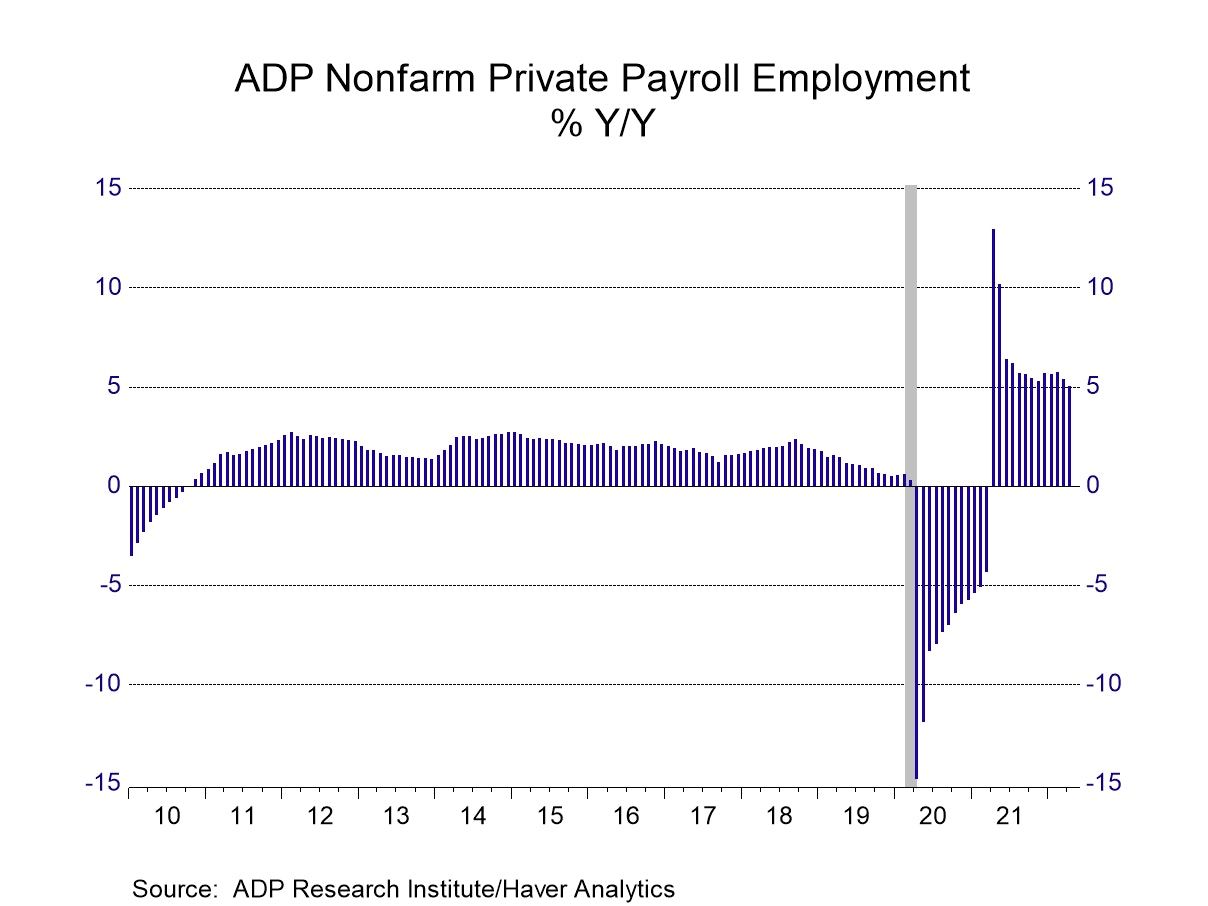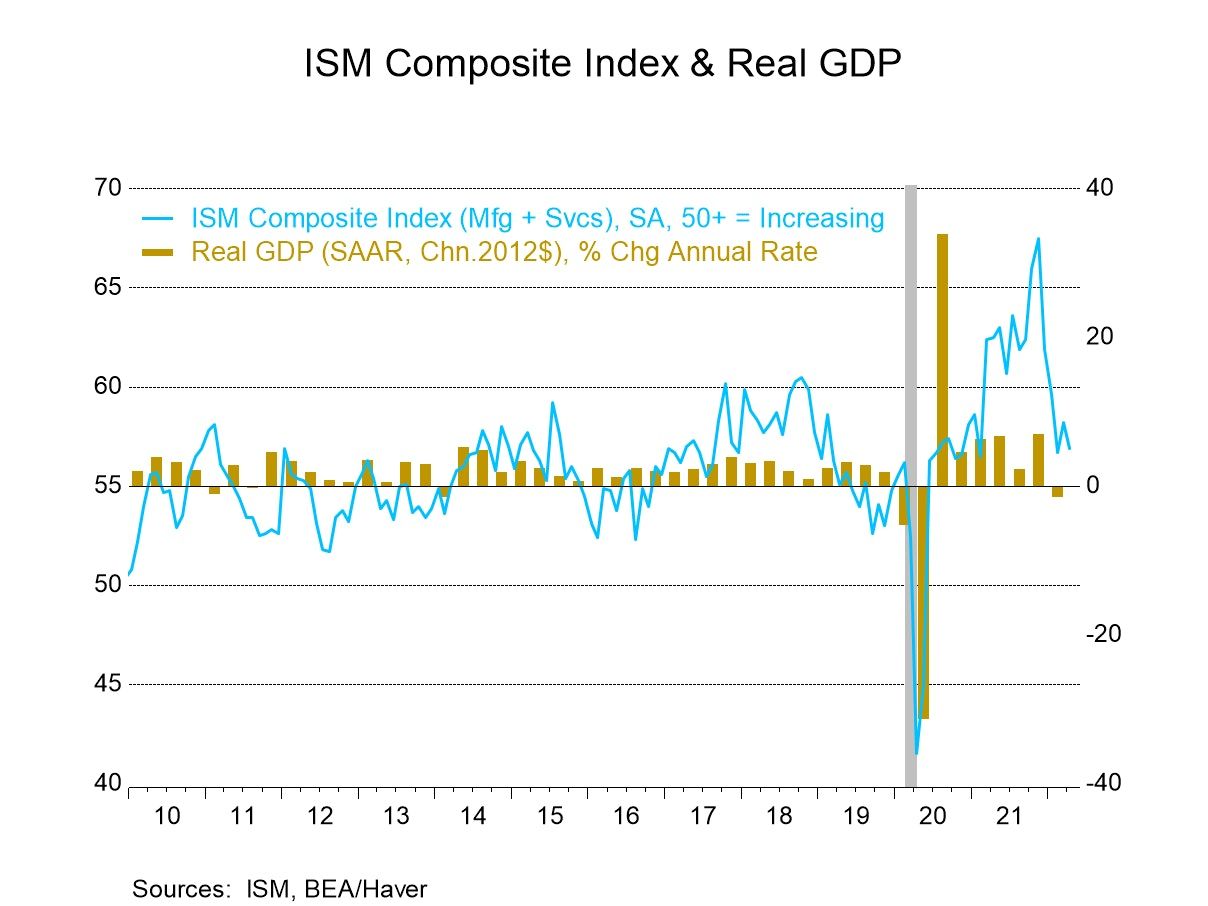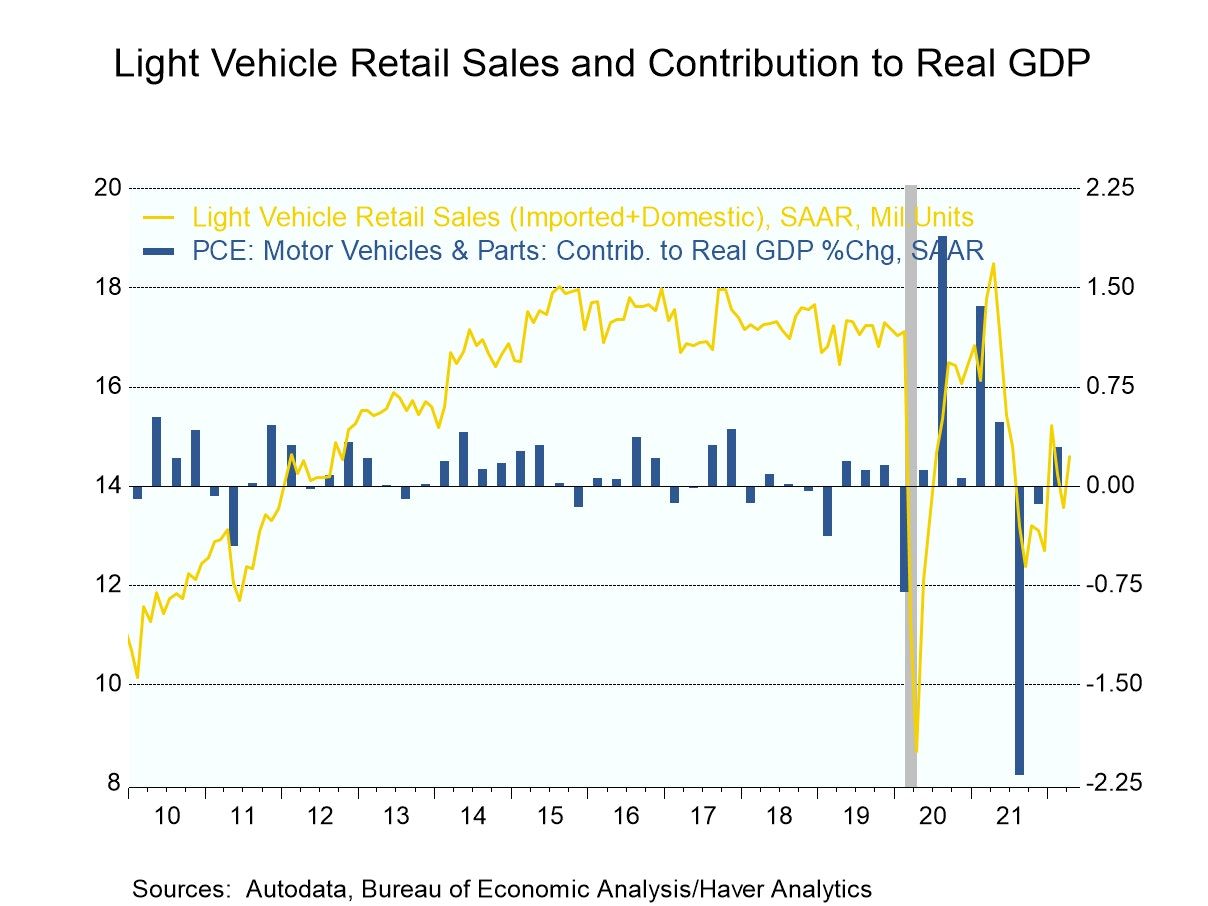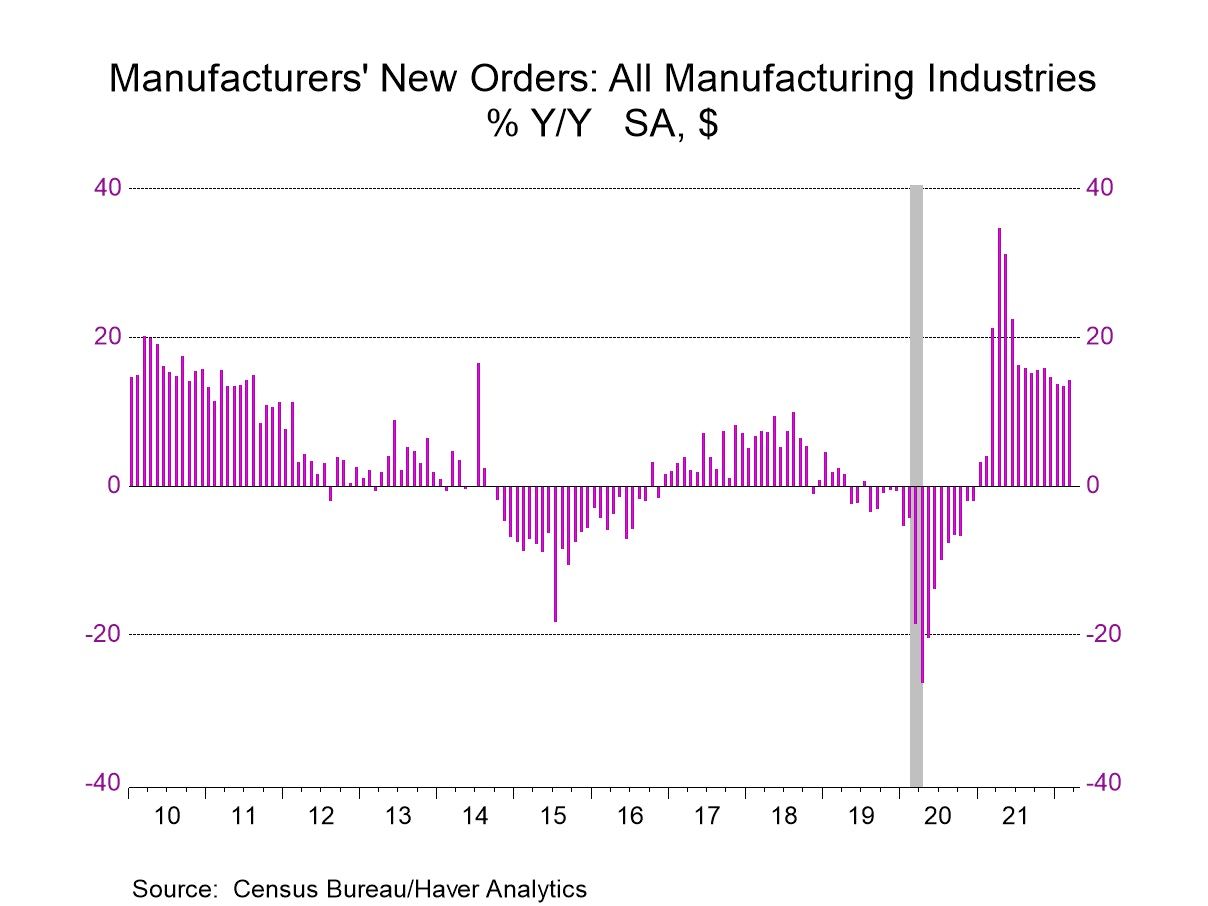- Overall gain is weaker than expected.
- Small business hiring declines.
- Slowdown is broad-based amongst industries.
- USA| May 04 2022
U.S. ADP Nonfarm Private Payroll Growth Slows Sharply in April
by:Tom Moeller
|in:Economy in Brief
- USA| May 04 2022
U.S. Mortgage Applications Turn Upward After 7 Weekly Declines
- Total applications up 2.5%.
- Loans to purchase a house rise 4.1%, refinance loans manage 0.2% increase.
- Mortgage interest rates ease slightly.
- USA| May 04 2022
U.S. ISM Services Index Declines in April
- Falloff is greater-than-expected.
- Sub-index movement is mixed.
- Prices strengthen to record high.
by:Tom Moeller
|in:Economy in Brief
- USA| May 04 2022
U.S. Trade Deficit Balloons to a Record $109.80 Billion in March
- Exports and imports at their record-high levels.
- Broad-based gains in goods exports and good imports.
- Petroleum imports rise for the third straight month; nonpetroleum imports post a record m/m gain.
- Real goods trade deficit rises to $137.83 billion, a record high.
- USA| May 03 2022
U.S. Light Vehicle Sales Improve in April
- Auto & light truck sales rise following two months of decline.
- Sales remain constrained as parts shortages limit dealer inventory.
- Imports' share increases slightly.
by:Tom Moeller
|in:Economy in Brief
- USA| May 03 2022
U.S. Factory Orders & Shipments Surge
- Orders increase broadly.
- Shipments strengthen for third straight month.
- Unfilled orders & inventories continue to rise.
by:Tom Moeller
|in:Economy in Brief
 Global| May 03 2022
Global| May 03 2022Has the Worm Turned? Is the Worm Turning?
The European Monetary Union (EMU) reached a peak unemployment rate of 11.7% early in the 2013 period. Since that point, the unemployment rate has been declining steadily, consistently across the European Monetary Union in the wake of the global financial crisis. And then COVID struck early in 2020; with COVID in play, the unemployment rate jerked back up to a peak of 7.8%, but has since returned to its downward path, and in fact, is carving out new lows. The unemployment rate in the EMU fell in March to 6.8% from 6.9% in February. The ongoing decline is good news and if it weren't for the virus, we would be on an extended long glidepath to lower rates - of consistently declining unemployment rates across the euro area.
However, in March there are some indications that the worm is starting to turn. March brings with it an increase in the rate of unemployment in four of the earliest members of the European Monetary Union: Spain, Ireland, Greece, and Portugal. All report increases in their unemployment rate in March. In Spain, the unemployment rate ticks up by one tenth of one percentage point to 13.5% from 13.4%. In Greece, it ticks up by one tenth of one percentage point to 12.9% from 12.8%. In Portugal, it ticks up by one tenth of one percentage point to 5.7% from 5.6%. But in Ireland, the unemployment rate rises to 5.5% from 5.2%. These are mostly small increases in the unemployment rate, perhaps no more than technical adjustments. However, Spain, Ireland, and Greece also post increases in their unemployment rates over the last three months. Ireland logs an increase in its unemployment rate over six months as well.
For the euro area as a whole, unemployment rates are continuing to fall, and these four countries are anomalies of sorts - but there are four of them - and these are among four of the weaker economies that are more likely to show economic distress sooner if conditions are changing. Consider them as the canaries in the coal mine…
Global conditions continue to be under a great deal of strain. The COVID virus is still circulating and creating issues that are being handled differently in different countries. Infections have spread, but that hasn't always increased hospitalizations or increased hospitalizations in a way that is alarming. There are ongoing dislocations stemming from when the COVID crisis is more severe, through its impact on supply chains. These are still being repaired. And even as these are being repaired, the supply chains are still being challenged anew by war in the Ukraine and by the economic sanctions that have been imposed on Russia. Russia seems determined to escalate the conflict and to intensify the combat if it can find the right cover to do so. The sense of risk is palpable.
Russia has started to cut off gas supplies to some of its customers in Europe; so far Bulgaria and Poland are on that list. Hungary, a country that tends to foster closer relations with Russia, has agreed to make its energy payments in rubles and has met with favor from Russia. It does not face the threat of having its energy cut off. However, even Germany is now making plans to decouple itself from the great intravenous pipeline flowing from Germany bringing the life blood of energy to its economy.
The European Monetary Union has seen the overall unemployment rate fall by 1.4 percentage points over the last 12 months; the number of unemployed in the monetary union has fallen by 14.6% and fallen by about the same amount (by 15%) in the larger group, the EU.
Unemployment over the last year has fallen the most sharply in Greece by 3.9 percentage points, in Austria by 2.4 percentage points and in Ireland by 2.2 percentage points. Unemployment has fallen by less than one percentage point in Portugal and France, and by one percentage point in Germany. The unemployment rate over the last 12 months is higher by one percentage point in the Netherlands.
- USA| May 03 2022
U.S. JOLTS: Job Openings Reach An All-Time High
- The number of job openings reached a series high in March.
- New hires edged down.
- Quits and layoffs rose.
- of102Go to 69 page









